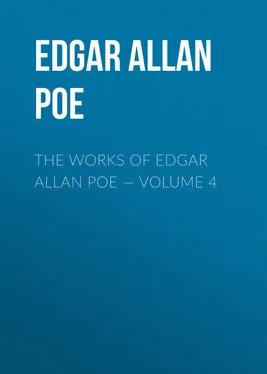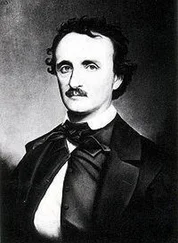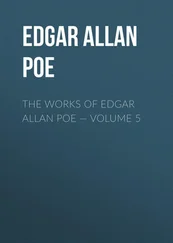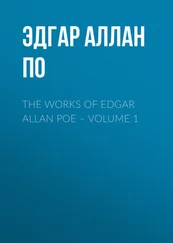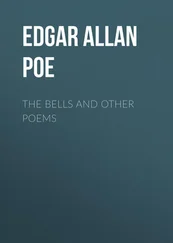Edgar Poe - The Works of Edgar Allan Poe — Volume 4
Здесь есть возможность читать онлайн «Edgar Poe - The Works of Edgar Allan Poe — Volume 4» — ознакомительный отрывок электронной книги совершенно бесплатно, а после прочтения отрывка купить полную версию. В некоторых случаях можно слушать аудио, скачать через торрент в формате fb2 и присутствует краткое содержание. Жанр: literature_19, foreign_antique, foreign_prose, на английском языке. Описание произведения, (предисловие) а так же отзывы посетителей доступны на портале библиотеки ЛибКат.
- Название:The Works of Edgar Allan Poe — Volume 4
- Автор:
- Жанр:
- Год:неизвестен
- ISBN:нет данных
- Рейтинг книги:3 / 5. Голосов: 1
-
Избранное:Добавить в избранное
- Отзывы:
-
Ваша оценка:
- 60
- 1
- 2
- 3
- 4
- 5
The Works of Edgar Allan Poe — Volume 4: краткое содержание, описание и аннотация
Предлагаем к чтению аннотацию, описание, краткое содержание или предисловие (зависит от того, что написал сам автор книги «The Works of Edgar Allan Poe — Volume 4»). Если вы не нашли необходимую информацию о книге — напишите в комментариях, мы постараемся отыскать её.
The Works of Edgar Allan Poe — Volume 4 — читать онлайн ознакомительный отрывок
Ниже представлен текст книги, разбитый по страницам. Система сохранения места последней прочитанной страницы, позволяет с удобством читать онлайн бесплатно книгу «The Works of Edgar Allan Poe — Volume 4», без необходимости каждый раз заново искать на чём Вы остановились. Поставьте закладку, и сможете в любой момент перейти на страницу, на которой закончили чтение.
Интервал:
Закладка:
Edgar Allan Poe
The Works of Edgar Allan Poe — Volume 4
THE DEVIL IN THE BELFRY
What o’clock is it? — Old Saying .
EVERYBODY knows, in a general way, that the finest place in the world is — or, alas, was — the Dutch borough of Vondervotteimittiss. Yet as it lies some distance from any of the main roads, being in a somewhat out-of-the-way situation, there are perhaps very few of my readers who have ever paid it a visit. For the benefit of those who have not, therefore, it will be only proper that I should enter into some account of it. And this is indeed the more necessary, as with the hope of enlisting public sympathy in behalf of the inhabitants, I design here to give a history of the calamitous events which have so lately occurred within its limits. No one who knows me will doubt that the duty thus self-imposed will be executed to the best of my ability, with all that rigid impartiality, all that cautious examination into facts, and diligent collation of authorities, which should ever distinguish him who aspires to the title of historian.
By the united aid of medals, manuscripts, and inscriptions, I am enabled to say, positively, that the borough of Vondervotteimittiss has existed, from its origin, in precisely the same condition which it at present preserves. Of the date of this origin, however, I grieve that I can only speak with that species of indefinite definiteness which mathematicians are, at times, forced to put up with in certain algebraic formulae. The date, I may thus say, in regard to the remoteness of its antiquity, cannot be less than any assignable quantity whatsoever.
Touching the derivation of the name Vondervotteimittiss, I confess myself, with sorrow, equally at fault. Among a multitude of opinions upon this delicate point — some acute, some learned, some sufficiently the reverse — I am able to select nothing which ought to be considered satisfactory. Perhaps the idea of Grogswigg — nearly coincident with that of Kroutaplenttey — is to be cautiously preferred. — It runs: — “Vondervotteimittis — Vonder, lege Donder — Votteimittis, quasi und Bleitziz — Bleitziz obsol: — pro Blitzen.” This derivative, to say the truth, is still countenanced by some traces of the electric fluid evident on the summit of the steeple of the House of the Town-Council. I do not choose, however, to commit myself on a theme of such importance, and must refer the reader desirous of information to the “Oratiunculae de Rebus Praeter-Veteris,” of Dundergutz. See, also, Blunderbuzzard “De Derivationibus,” pp. 27 to 5010, Folio, Gothic edit., Red and Black character, Catch-word and No Cypher; wherein consult, also, marginal notes in the autograph of Stuffundpuff, with the Sub-Commentaries of Gruntundguzzell.
Notwithstanding the obscurity which thus envelops the date of the foundation of Vondervotteimittis, and the derivation of its name, there can be no doubt, as I said before, that it has always existed as we find it at this epoch. The oldest man in the borough can remember not the slightest difference in the appearance of any portion of it; and, indeed, the very suggestion of such a possibility is considered an insult. The site of the village is in a perfectly circular valley, about a quarter of a mile in circumference, and entirely surrounded by gentle hills, over whose summit the people have never yet ventured to pass. For this they assign the very good reason that they do not believe there is anything at all on the other side.
Round the skirts of the valley (which is quite level, and paved throughout with flat tiles), extends a continuous row of sixty little houses. These, having their backs on the hills, must look, of course, to the centre of the plain, which is just sixty yards from the front door of each dwelling. Every house has a small garden before it, with a circular path, a sun-dial, and twenty-four cabbages. The buildings themselves are so precisely alike, that one can in no manner be distinguished from the other. Owing to the vast antiquity, the style of architecture is somewhat odd, but it is not for that reason the less strikingly picturesque. They are fashioned of hard-burned little bricks, red, with black ends, so that the walls look like a chess-board upon a great scale. The gables are turned to the front, and there are cornices, as big as all the rest of the house, over the eaves and over the main doors. The windows are narrow and deep, with very tiny panes and a great deal of sash. On the roof is a vast quantity of tiles with long curly ears. The woodwork, throughout, is of a dark hue and there is much carving about it, with but a trifling variety of pattern for, time out of mind, the carvers of Vondervotteimittiss have never been able to carve more than two objects — a time-piece and a cabbage. But these they do exceedingly well, and intersperse them, with singular ingenuity, wherever they find room for the chisel.
The dwellings are as much alike inside as out, and the furniture is all upon one plan. The floors are of square tiles, the chairs and tables of black-looking wood with thin crooked legs and puppy feet. The mantelpieces are wide and high, and have not only time-pieces and cabbages sculptured over the front, but a real time-piece, which makes a prodigious ticking, on the top in the middle, with a flower-pot containing a cabbage standing on each extremity by way of outrider. Between each cabbage and the time-piece, again, is a little China man having a large stomach with a great round hole in it, through which is seen the dial-plate of a watch.
The fireplaces are large and deep, with fierce crooked-looking fire-dogs. There is constantly a rousing fire, and a huge pot over it, full of sauer-kraut and pork, to which the good woman of the house is always busy in attending. She is a little fat old lady, with blue eyes and a red face, and wears a huge cap like a sugar-loaf, ornamented with purple and yellow ribbons. Her dress is of orange-colored linsey-woolsey, made very full behind and very short in the waist — and indeed very short in other respects, not reaching below the middle of her leg. This is somewhat thick, and so are her ankles, but she has a fine pair of green stockings to cover them. Her shoes — of pink leather — are fastened each with a bunch of yellow ribbons puckered up in the shape of a cabbage. In her left hand she has a little heavy Dutch watch; in her right she wields a ladle for the sauerkraut and pork. By her side there stands a fat tabby cat, with a gilt toy-repeater tied to its tail, which “the boys” have there fastened by way of a quiz.
The boys themselves are, all three of them, in the garden attending the pig. They are each two feet in height. They have three-cornered cocked hats, purple waistcoats reaching down to their thighs, buckskin knee-breeches, red stockings, heavy shoes with big silver buckles, long surtout coats with large buttons of mother-of-pearl. Each, too, has a pipe in his mouth, and a little dumpy watch in his right hand. He takes a puff and a look, and then a look and a puff. The pig — which is corpulent and lazy — is occupied now in picking up the stray leaves that fall from the cabbages, and now in giving a kick behind at the gilt repeater, which the urchins have also tied to his tail in order to make him look as handsome as the cat.
Right at the front door, in a high-backed leather-bottomed armed chair, with crooked legs and puppy feet like the tables, is seated the old man of the house himself. He is an exceedingly puffy little old gentleman, with big circular eyes and a huge double chin. His dress resembles that of the boys — and I need say nothing farther about it. All the difference is, that his pipe is somewhat bigger than theirs and he can make a greater smoke. Like them, he has a watch, but he carries his watch in his pocket. To say the truth, he has something of more importance than a watch to attend to — and what that is, I shall presently explain. He sits with his right leg upon his left knee, wears a grave countenance, and always keeps one of his eyes, at least, resolutely bent upon a certain remarkable object in the centre of the plain.
Читать дальшеИнтервал:
Закладка:
Похожие книги на «The Works of Edgar Allan Poe — Volume 4»
Представляем Вашему вниманию похожие книги на «The Works of Edgar Allan Poe — Volume 4» списком для выбора. Мы отобрали схожую по названию и смыслу литературу в надежде предоставить читателям больше вариантов отыскать новые, интересные, ещё непрочитанные произведения.
Обсуждение, отзывы о книге «The Works of Edgar Allan Poe — Volume 4» и просто собственные мнения читателей. Оставьте ваши комментарии, напишите, что Вы думаете о произведении, его смысле или главных героях. Укажите что конкретно понравилось, а что нет, и почему Вы так считаете.
